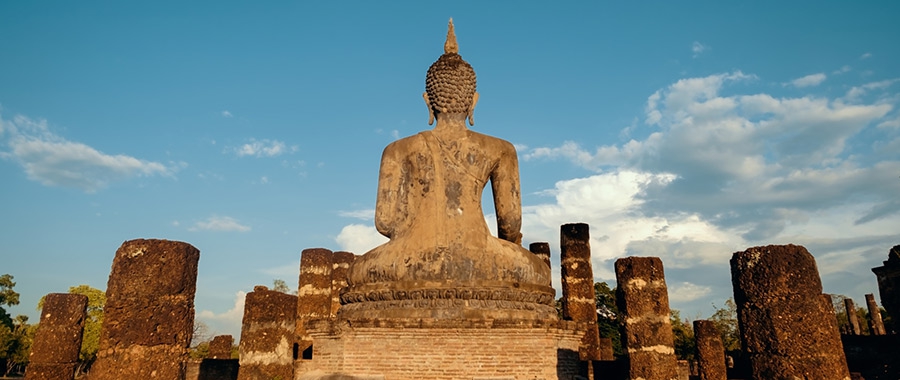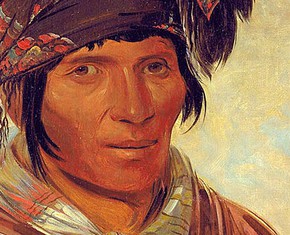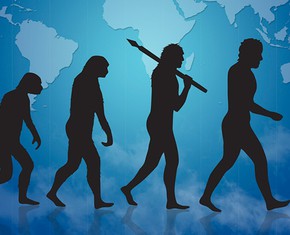The views expressed in our content reflect individual perspectives and do not represent the authoritative views of the Baha'i Faith.
Every religion has a vision of the future, as well as a view of the past, which, all told, informs each religion’s understanding of the present.
The future Buddha, Maitreya—past and present, far and wide—has enjoyed, and continues to enjoy, widespread popularity and devotion among Buddhists. Virtually all Buddhists believe in Maitreya as the future Buddha, destined to appear in a promised Golden Age.
Buddhist literature on Maitreya is abundant. Among the most recent publications is this: The Sutra That Expounds the Descent of Maitreya Buddha and His Enlightenment, translated by Shōtarō Iida and Jane Goldstone (Moraga, CA: BDK America, 2016). (Buddhist scholar (and Baha’i), Jane Nishi Goldstone spoke at my wedding reception in North Vancouver, BC, on May 27, 1984.)
The present-day claim that Baha’u’llah is the future Maitreya is a religious phenomenon that scholars refer to generally as “realized eschatology”—the belief that the future transformation of the world, expected to occur at the end of history, has already taken place. In other words, Baha’is believe that Baha’u’llah is Maitreya, not quite as expected, but in symbolic and spiritual fulfillment of Buddhist prophecies nevertheless.
The Baha’i Faith teaches that the historical Buddha was an authentic messenger of God, and that the Buddha was part of a chain of successive spiritual teachers in salvation history, which Baha’is referred to as “Progressive Revelation.” So far, so good. But there’s a big problem—three big problems, actually:
- Buddhists today, generally speaking, do not believe in God. At best, some may be agnostics, rather than atheists;
- This problem presents a challenge to another Baha’i teaching, which is the “oneness of religion.” Given such differences, how is the Baha’i Faith “one” with Buddhism?
- There’s yet another problem: since Baha’u’llah is identified, by Baha’is, as the future Buddha, Maitreya, then how are Baha’u’llah’s teachings, in his role as Maitreya, compatible with the fundamental tenets of Buddhism?
So how can Baha’u’llah be Maitreya, the future Buddha, if Buddhists don’t believe in God? Fair question.
Except that it’s “begging the question”! How? By including the statement: “Buddhists don’t believe in God.” That assumption itself may be open to question.
In 1973, Baha’i author Jamshed Fozdar published The God of Buddha. The single most important Buddhist scripture that Fozdar adduced as proof that the Buddha taught about God, was Edward Conze’s older translation of the following text (a newer translation, published in 2008):
The Third Discourse about Nibbāna
“There is, monks, an unborn, unbecome, unmade, unconditioned.
If, monks there were not that unborn, unbecome,
unmade, unconditioned, you could not know an escape here
from the born, become, made, and conditioned.
But because there is an unborn, unbecome,
unmade, unconditioned, therefore you do know an escape
from the born, become, made, and conditioned.”
– the Buddha, Udāna: Exalted Utterances, translated by Ānandajoti Bhikkhu (2008) p. 261.
As indicated by the title, this passage is widely understood to be about Nirvana, a state and realm of enlightenment, which is the ultimate goal of Buddhists generally. But Fozdar argued that, in this passage, the Buddha refers to God.
Now let’s look at another text. Buddhist scholar Professor Eva K. Dargyay was a faculty member of the Department of Religious Studies at the University of Calgary, where I earned my Master’s degree (1987–1989). Although she was not my Buddhism professor, she and I had some good conversations. Much to my surprise, she told me that she had discovered (or rediscovered) an obscure Tibetan Buddhist text which affirmed the existence of a Creator deity.
In her 1985 paper—The Concept of a “Creator God” in Tantric Buddhism, Journal of the International Association of Buddhist Studies 8.1 (1985): 31–47—Professor Dargyay opens with this controversial statement:
This contribution is provocative in that it attempts to modify some well established conceptions of the nature of Buddhist religion. … In order to raise doubts about the adequacy of our understanding of reality in the Buddhist sense I use a concept commonly negated in Buddhism, i.e., that of a “Creator God.” – p. 31.
The Tibetan Buddhist text presented here features a deity referred to, in 1985, as the “All-Creating King.” In 1992, Professor Dargyay expanded and published this unique Tibetan Buddhist text as: The Sovereign All-creating Mind—the Motherly Buddha: A Translation of the Kun Byed Rgyal Po’i Mdo, translated by Eva K. Neumaier-Dargyay. As to the text itself, this is one of the statements by the “All-Creating Sovereign”:
“I am the All-Creating Sovereign, mind of perfect purity. A bodhisattva ought to understand My name. If a bodhisattva recognizes My name, he or she will understand all things without exception. … ‘Creating,’ I am called master of creation. As I have created the “teachers, teachings, retinues, place and time, I am the master of the self-originated pristine awareness. I am called Sovereign as I am superior to everything as the creator of all things and as the inner vigor of the self-originated pristine awareness”.’” – The Sovereign All-creating Mind—the Motherly Buddha, pp. 57–59.
Note that “All-Creating” is the name of this supreme deity. She has always been, is, and will ever be, the “creating” force behind all phenomena throughout the universe. Similarly, Baha’u’llah declared:
As to thy question concerning the origin of creation. Know assuredly that God’s creation hath existed from eternity, and will continue to exist forever. Its beginning hath had no beginning, and its end knoweth no end. His name, the Creator, presupposeth a creation. … Consider the hour at which the supreme Manifestation of God revealeth Himself unto men. Ere that hour cometh, the Ancient Being, Who is still unknown of men and hath not as yet given utterance to the Word of God, is Himself the All-Knower in a world devoid of any man that hath known Him. He is indeed the Creator without a creation. – Baha’u’llah, Gleanings from the Writings of Baha’u’llah, pp. 150–151.
Roland Faber, a Baha’i academic, is the Kilsby Family/John B. Cobb, Jr. Professor of Process Studies at Claremont School of Theology, and founder of the Whitehead Research Project. He offers the following rationale for reconciling Buddhist and Baha’i perspectives on “Reality” (non-duality) and “God” (metaphysical dualism):
Buddhism in general, although not universally, negates the meaningfulness of calling this Reality God. It rests its argumentation precisely on the refutation of the concept of the creator. … But Diidjom Lingpa, a contemporary of Baha’u’llah, confirms in his Vajra Heart Tantra that the infinite creativity of the Luminous Mind, again represented by Samantabhadra, actively creates all mental and physical elements from its primordial modes of wisdom, although mysteriously through ignorance and defilement. This resonates with the Baha’i view on creation, which can, in one perspective, be understood as illusion and mirage, but is in its root nature nothing but the creative emanation of Uncompounded Reality. – “Baha’u’llah and the Luminous Mind: Baha’i Gloss on a Buddhist Puzzle,” Lights of Irfan, Volume 18, p. 87.
In another Buddhist text, the Sovereign Mind proclaims: “Because all the Buddhas of the three times (past, present and future) merge from Me, I am called the Buddha-Mother.” (Translated by Dargyay, in The Sovereign All-creating Mind, p. 29.)
Therefore, the historical Buddha (Siddartha Gautama Shakyamuni) and Baha’u’llah (as the future Buddha, Maitreya) are sons of the same Divine Mother—the Creator.
You May Also Like
Comments

















conditions. Samantabhadra is not a coloured being with two eyes, etc.
Samantabhadra is the unity of awareness and emptiness, the unity of
appearances and emptiness, the nature of mind, natural clarity
with unceasing compassion - that is Samantabhadra from the very beginning.”
Dzongsar Jamyang Khyentse Rinpoche
O SON OF MAN! Veiled in My immemorial being and in the ancient eternity of My essence, I knew My love for thee; therefore I created thee, have engraved on thee Mine image and revealed to thee My beauty. (Baha’u’llah, The Hidden Words, Arabic Hidden Word #3.)
O SON OF BEING! Thy heart is My home; sanctify it for My descent. Thy spirit is My place of revelation; cleanse it for My manifestation. (Arabic Hidden Word #59.)
That said, the Baha’i perspective is distinguishable from the Advaita Vedanta ...philosophy of Monism, or Oneness (which I understand you to be advocating here), in that the spiritual immanence of God coexists with the absolute transcendence of God.
Critics point to supposed contradictions between Buddhist and Baha’i doctrines, to invalidate Baha’i claims. So this question over Buddhist doctrine—or, more precisely, the doctrine of the historical Buddha (if recoverable)—as to “God” is a key issue.
Are you suggesting that the universal veneration of the Buddha in Buddhist practice somehow functions ...analogously to the worship of God in the Abrahamic faiths?